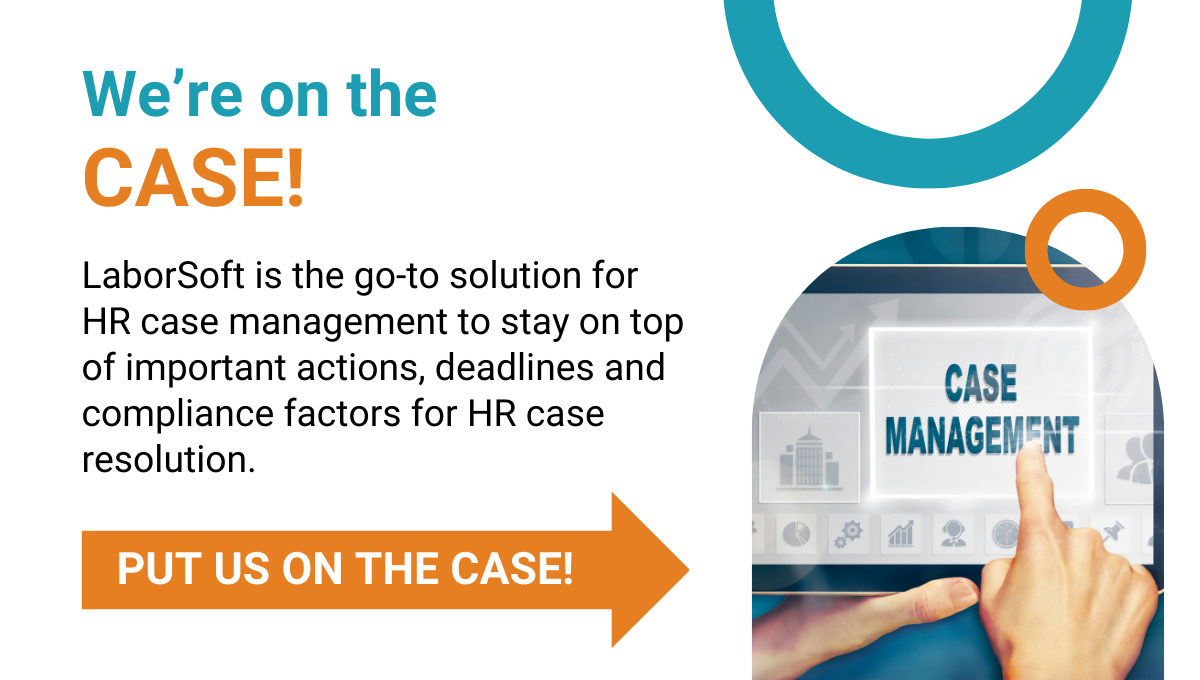Recent Rulings Stress the Importance of HR Case Management
Read Time 4 mins | Jan 28, 2019 | Written by: Frankie Kourtis

Recent Rulings Stress the Importance of HR Case Management

As a corporate supervisor or HR manager, you are well aware of the significance of case management. It is how organizations manage employee requests or inquiries, especially in the domain of requested family or medical leave. Technology of late has made HR case management easier and more manageable, however there can still be many pitfalls and gray areas when it comes to case management and transparency. In fact, a few recent high-profile cases have pushed HR case management into the spotlight and you should be aware of them as the rulings may pertain to the region or industry that your organization conducts business in.
Supreme Court Rules in Favor of Independent Contractor in Arbitration Case
On January 15, 2019, the U.S. Supreme Court ruled against an interstate trucking company that tried to inflict arbitration on a truck driver who worked as an independent contractor for them. The truck driver had brought a class-action suit against the trucking company—the complaint being over mistreatment and denial of certain employment benefits, such as minimum wage payments, due to his status as an independent contractor. The loophole found which led to the Supreme Court ruling was inherent in the Federal Arbitration Act (FAA), a law that provides businesses the right to enforce reasonably drafted agreements to arbitrate work-related claims in general. However, in Section 1, there is an exception for “contracts of employment of seamen, railroad employees, or any other class of workers engaged in foreign or interstate commerce.” This gave the independent contractor leeway in terms of the arbitration of employment claims.
The high court’s ruling stemmed from its interpretation of the exception in the law, that “a ‘contract of employment’. . . [did not] necessarily signal[ed] a formal employer-employee or master-servant relationship,” as written by Justice Gorsuch in the judgment. While this decision is very significant to the transportation industry and, for that matter, those that participate in interstate commerce, Richard Rosenblatt, an attorney with Morgan Lewis in NJ and PA, points out that, “. . .it does not ultimately resolve whether an arbitration agreement will be enforced.”
State Court Rules to Advance FMLA Claim for Tax Collector in Florida
On December 7, 2018, a Florida court ruled in favor of a retaliation and FMLA interference claim filed by a plaintiff, a tax clerk for the Orange County Tax Collector (OCTC) department. She filed a lawsuit against the department alleging disability discrimination, retaliation, and interference under the FMLA and Florida law due to enforcement of what she viewed as an unfair point-based tardiness policy, as well as harassment claims and unlawful termination. While she was employed there for 10 years, she had incurred 7 out of 8 allowed points for unexcused absences and/or tardy arrivals to work; it should be noted that the employee suffered from various medical problems. However, the eighth infraction was assessed for being late to her desk by seconds after a break, deemed grounds for termination according to the employer’s policy. She had a right to a predetermination hearing, but on the day it was scheduled, the woman passed out in the parking lot of the premises. While on FMLA leave to recover from her condition, she was encouraged by HR to resign or she was threatened that she would be terminated upon her return back to work. Since she refused to resign, the company followed through with terminating her after a predetermination hearing upon her return to work.
The court found that the company’s actions supported the charge of retaliation, since her firing happened only six months after her complaint was filed. The harassment charge was affirmed based on an HR administrator’s conduct on the phone with the plaintiff while she was on FMLA leave, when she was encouraged to “. . .resign and try to collect Medicaid or food stamps.” This comment, along with evidence that OCTC fired her while deciding not to fire another employee who was more than 15 minutes late, supported the assertion that her firing was a pretext for FMLA interference and retaliation.
This recent ruling demonstrates the need for transparent but fair absence and tardiness policies, allowing for appropriate exceptions for protected leave status. However, employers should also be cautious about the consequences they dole out. If they are too severe based on the infraction or violation of a policy, a court could interpret that as having a discriminatory bias or retaliatory motive. Overall, these developments in case law show the importance of fully understanding the laws that govern the workplace and leave and the need for stringent tracking and HR case management.
LaborSoft’s innovative technology is one of many integral solutions that keep your business, in business. Our HR analytics, case management workflows, and our central repository of documentation streamlines case management to mitigate risk of operational bottlenecks, costly lawsuits, and legal ramifications stemming from HR issues and complaints. This sensitive data requires that maximum security protocols are in place and that your information is protected at all times.
Contact us for a customized demonstration and learn how LaborSoft can help you improve communications, build a more collaborative, safe, and supportive workplace, while reducing the likelihood of costly litigation.

